What if the Easter Story Happened Today?
Here’s the irony at the heart of the Easter story in 2025:
If Jesus showed up today, the loudest of voices calling for his arrest—or worse—would include a significant percentage of people who claim to follow him. Especially those draped in flags, shouting about “Christian values,” while propping up leaders whose lives and messages stand in direct opposition to everything Jesus actually taught.
He wouldn’t flatter the powerful or stir up hate. He’d talk about love. About serving the poor. About welcoming immigrants. He’d say things like, “You can’t serve both God and money.”
And just like last time, that message would be too inconvenient to let live.
Imagine this:
A man appears in a time of deep unrest. People are divided. Institutions claim to speak for something higher, but their actions often breed exclusion, fear, and punishment. Some preach righteousness while ignoring the suffering around them. Others weaponize ancient texts to justify injustice. It feels familiar, doesn’t it?
This man arrives not with armies or wealth, but with simple, disarming clarity: What if love was the whole point? Not the romantic kind, but love as action—kindness, mercy, justice, dignity. Love for neighbors and strangers alike. Love that feeds the hungry, welcomes the outsider, and refuses to measure human worth by status, race, or bank account.
He speaks against greed. He challenges systems and it shakes people. Not because he’s wrong—but because he’s right, and that kind of truth is inconvenient for most of us.
Think about it in today’s context. Would he build walls to keep desperate families out? Or would he welcome them, share what little he had, and call others to do the same? Would he stand with billionaires hoarding wealth—or those sleeping in shelters, crossing deserts, working double shifts for crumbs?
He’d probably be called “radical.” “Naïve.” “Unpatriotic.” Maybe even dangerous.
He was in his own time, too.
That’s why he was killed.
He was killed because He challenged the status quo. He flipped tables in the temple, exposed hypocrisy, and showed that love—not law, not power, not wealth—is the way to God. His resurrection wasn’t just the defeat of death—it was the triumph of love over hate, humility over pride, mercy over judgment.
If the Easter story happened today, Jesus would still be found among the marginalized. He’d still be calling us to a radical love that breaks boundaries and redefines what it means to be faithful. And He’d still be misunderstood, rejected, and crucified—maybe by some of the very people claiming to represent Him.
But love would rise again. It always does.
The Easter story, at its heart, is about love that defies death. It’s about a man standing up in a world of cruelty and saying, “There’s a better way”—and then living that truth so fully, it got him executed. But the story doesn’t end there. Because the love he embodied? It didn’t die. It couldn’t.
And here’s the thing: you don’t have to be religious to get the message. You don’t have to believe in resurrection to believe that love can outlast hate, that kindness can survive cruelty, and that having compassion for one another would help to heal our nation and actually make it great.
It’s worth asking ourselves: if this story happened today, whose side would we be on? Would we recognize love when we saw it? Would we dismiss it as weakness, or lean into it as strength?
Maybe the question isn’t “Would we recognize Jesus if he showed up today?”
Maybe the better question is: Would we even want to?
Because if we did, we’d have to let go of a lot—our need to be right, our comfort with injustice, our obsession with money, power and control. We’d have to stop using religion as a weapon and start using love as a guide. And for many, that’s harder than just calling ourselves Christians.
True Christianity as defined by the teachings of Christ, is about compassion, not conformity. It isn't so much a religion as it is a way out of Religious oppression and a way of life—or a way to a better life through love.
Our Western culture teaches The Easter story as a key part of Religious Doctrine but it has more to do with upending it—with love so radical, it threatened the systems built to keep people divided. If that kind of love walked into our world again, would we stand with it—or against it?
“If our Christianity causes kids to go hungry, the sick to go without healthcare, the stranger to be unwelcome, the elderly on social security to be called a ‘parasite,’ all while billionaires get richer, we’ve profoundly misunderstood the most basic elements of Jesus’ teachings.” —Benjamin Cremer
To all of my readers, subscribers, and followers, your support means the world to me. I'm beyond thankful for each and every one of you.
If you enjoy my posts please share, comment, and consider becoming a subscriber.
If you enjoyed this post, in particular, I encourage you to check out these talented Substackers; @Amy Lambert, @Heather Heaton, @Larry Brickner-Wood, @Leah Watkins, @Rachel Marie Kang, @Rev. Dr. Shannon Fleck, @Rev Tom Jordan, @Zach W. Lambert
XO— Tirzah





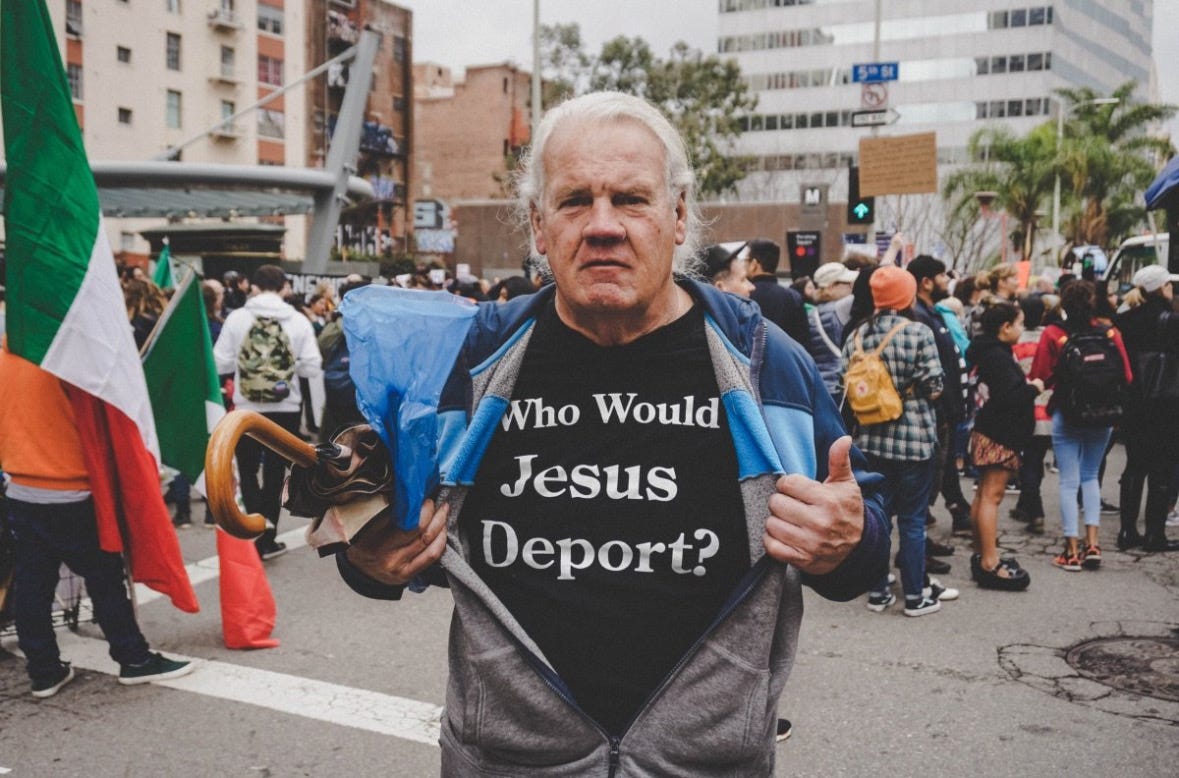
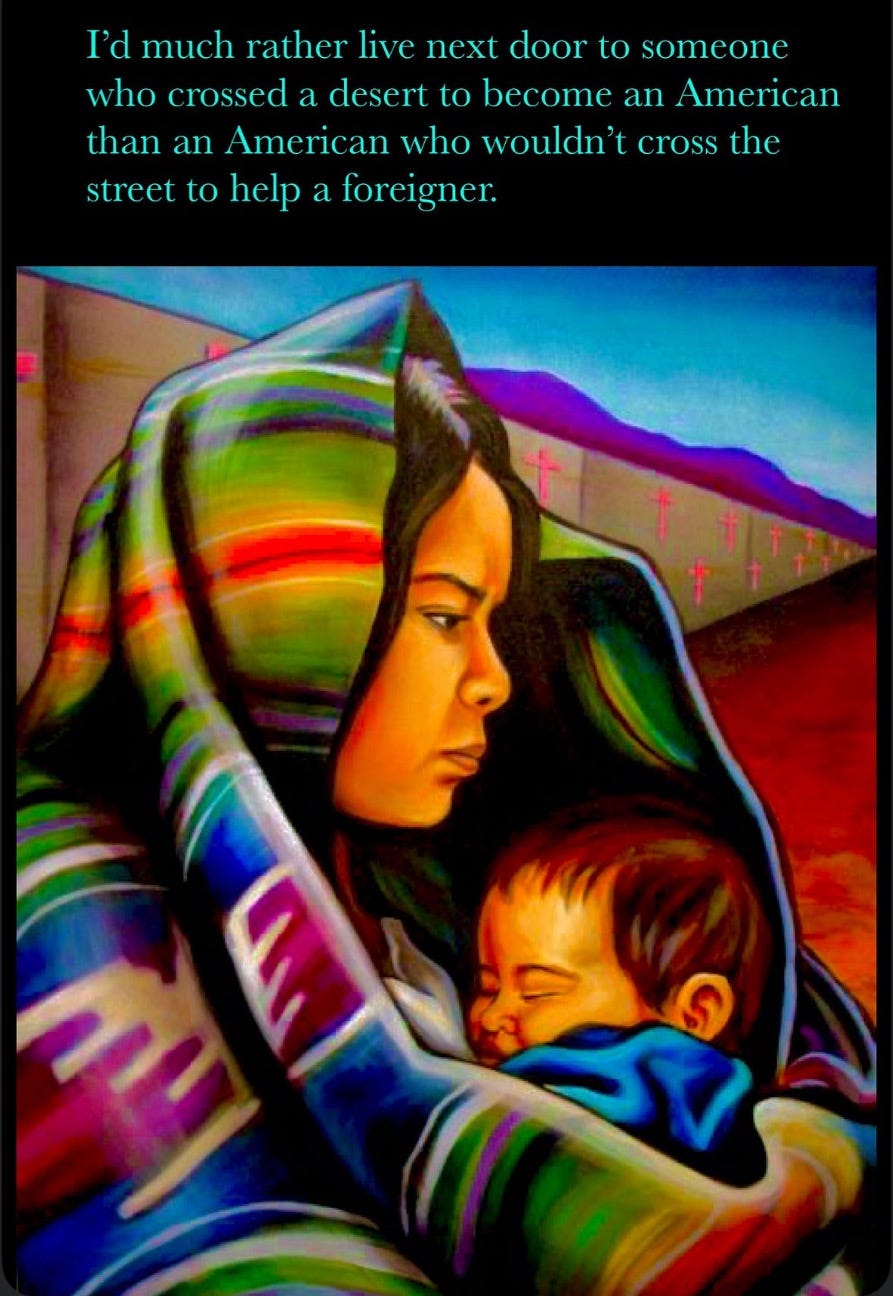
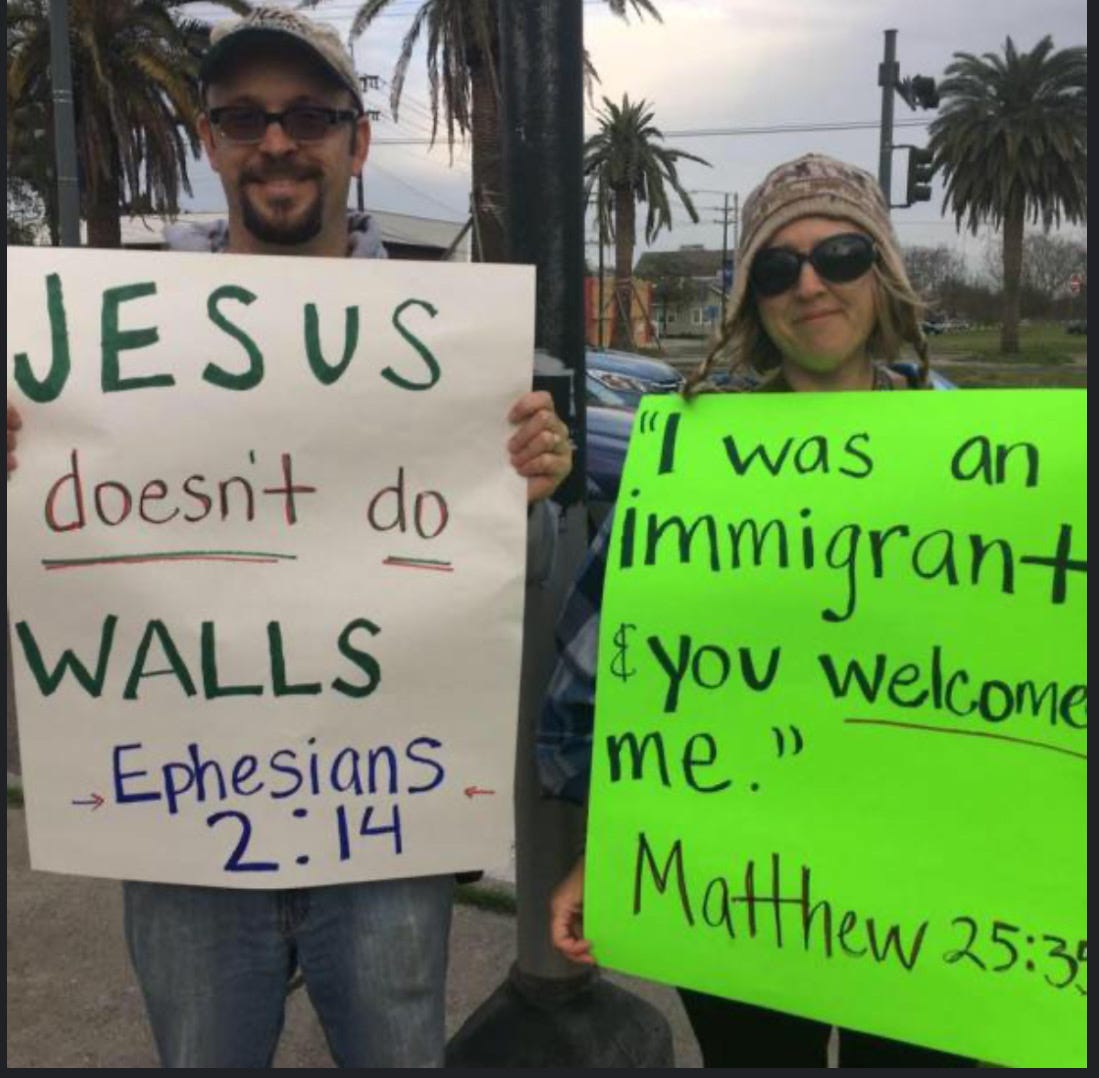
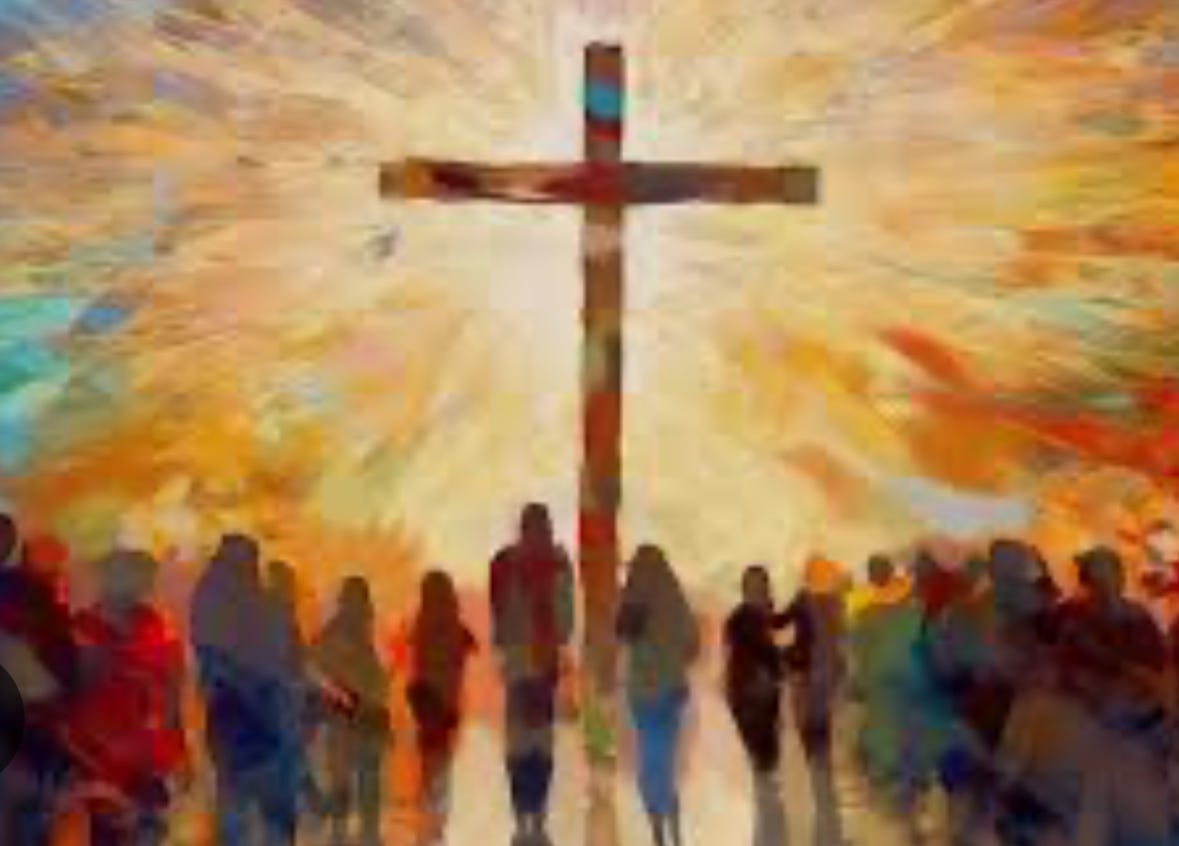
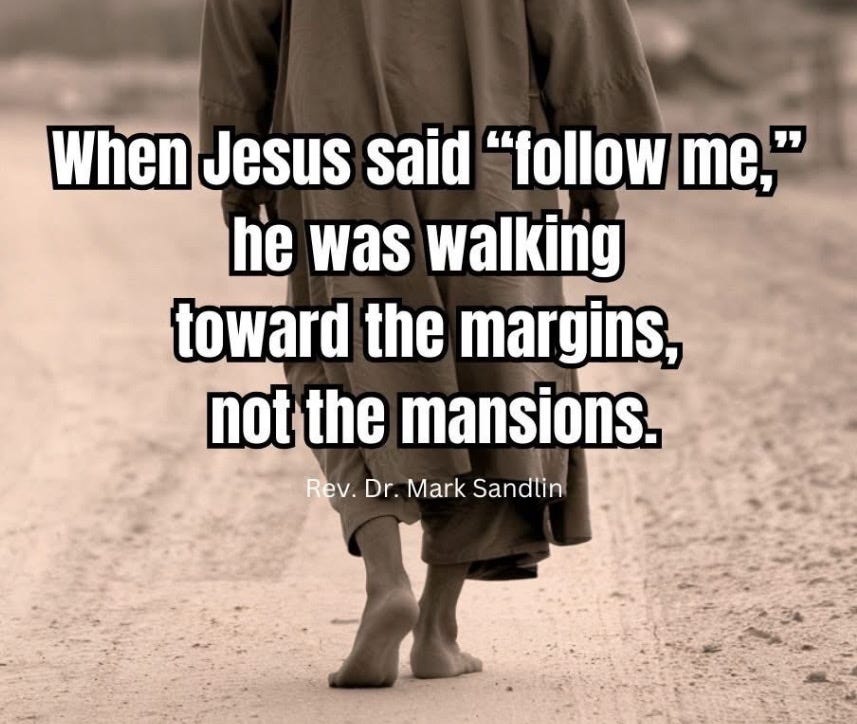

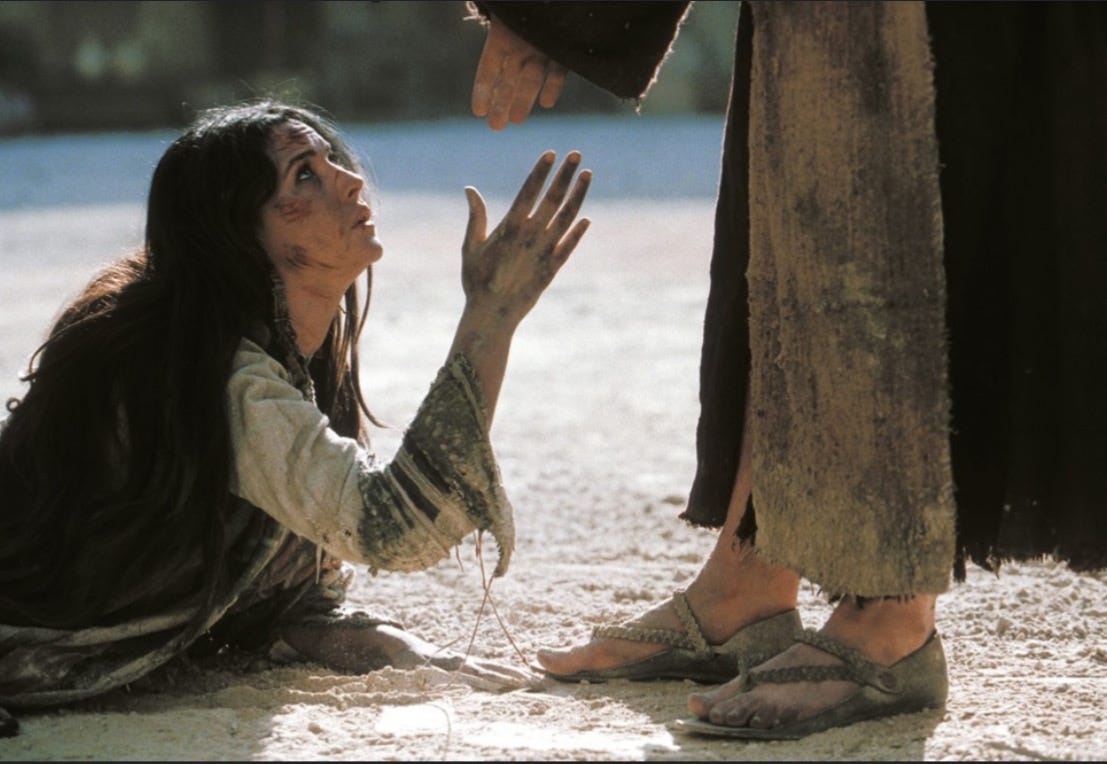

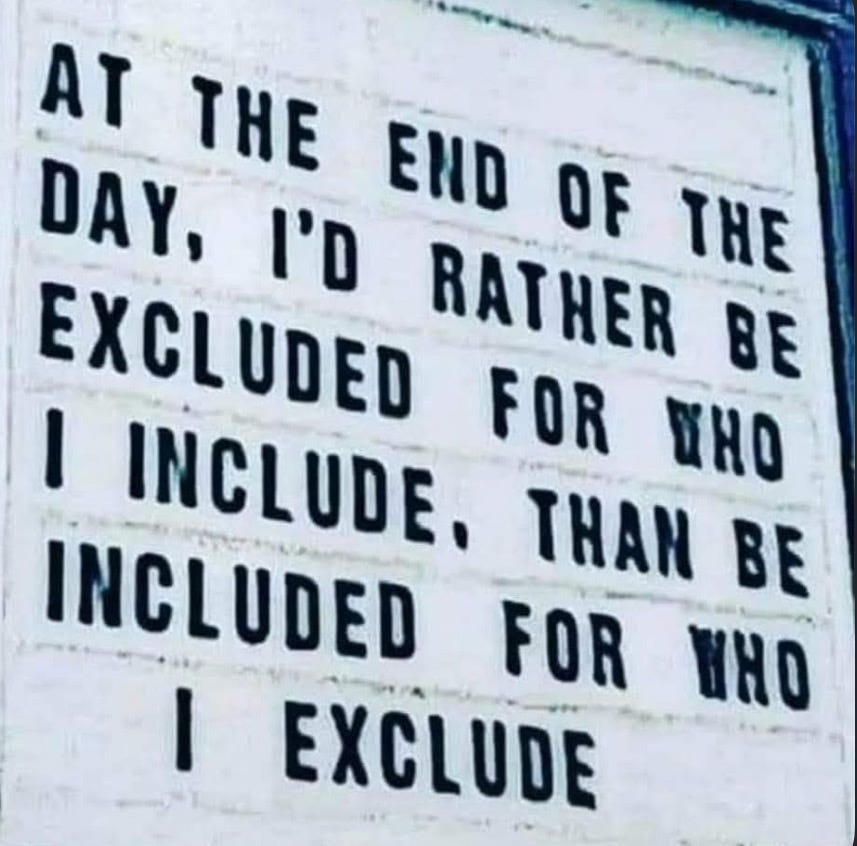
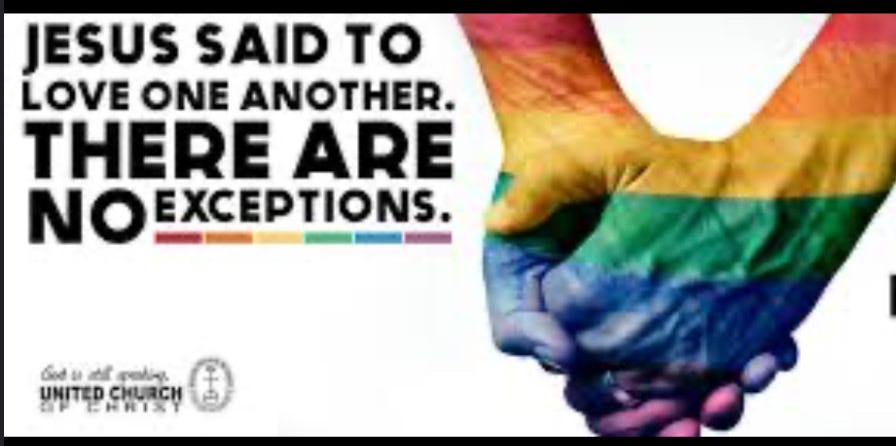
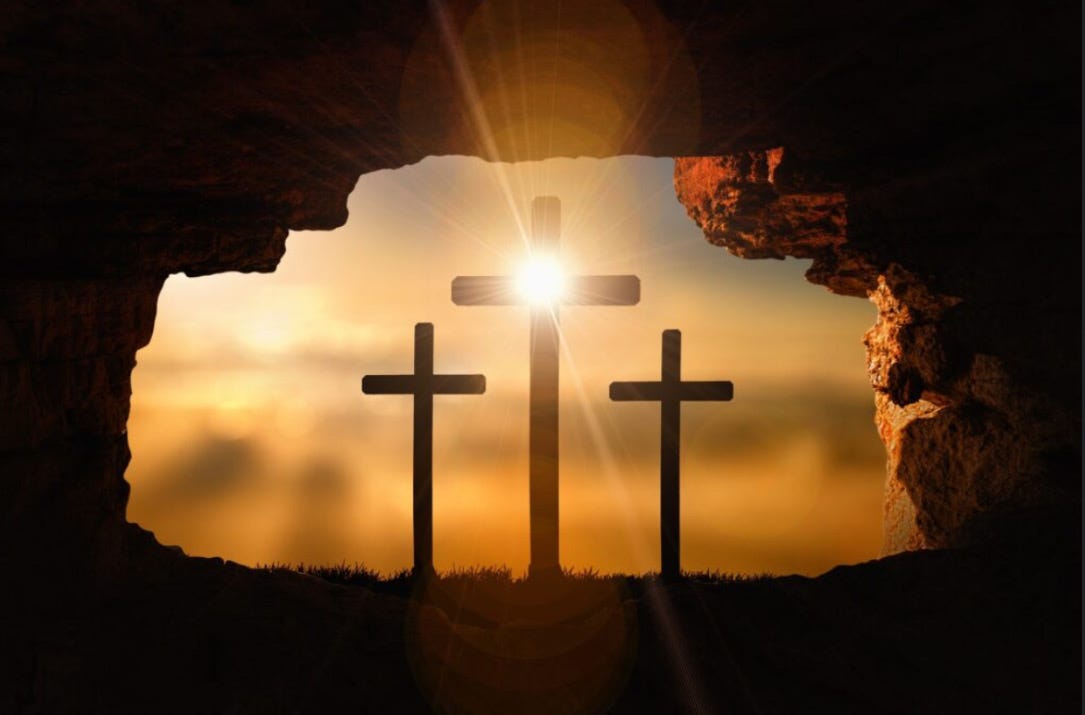
[mic drop]